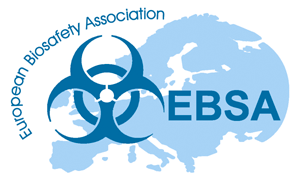About EBSA18 - Course C - Challenges ofnew genetic techniques for biosafety
EBSA18 - Course C - Challenges ofnew genetic techniques for biosafety
Instructors:
Katia Pauwels, Scientific Institute Public Health (WIV-ISP), Belgium
Sharon Wood, Universal Safety Consultants Limited, United Kingdom
Introduction
What is exactly new about ‘new techniques’ and are these ‘new’ techniques inherently associated with ‘new’ risks? What is synthetic biology and to which extent its areas of research become part of current research conducted by your colleagues ? What are the aspects a biosafety officer should look for when conducting a risk assessment? What is meant by ‘safety by design’ and what are possibilities and limitations?
Targeted Audience While open to all those who are eager to keep up with novel developments , this course will be particularly suitable for - biosafety professionals who would like to keep an informed dialogue with researchers on new techniques of genetic modification in order conduct appropriate risk assessments and propose adequate risk management measures. - regulators and policy makers who aim at having an overview of emerging research areas and developments in genetic engineering and beyond.
Means
Throughout lectures (power point presentations, references to European and international guidelines, scientific opinions and scientific literature) and interactive sessions (risk assessment excercises based on case studies or examples from scientific literature) participants will be introduced to several fields of research and will be invited to share their experience and questions.
Learning objectives
After this one-day course participants shall :
- be able to recognize research (and development) objectives involving new techniques of genetic modification that may or may not pose (additional) uncertainties and level of complexity for their risk/safety assessment towards human health and environment.
- have keys to identify potential gaps of knowledge for conducting risk assessment
- have considerations for proposing risk management measures proportionate to the risks
- be able to consider related scientific literature
Main Topics
Recognizing research (and development) objectives involving new techniques of genetic modification; identification of potential gaps of knowledge for conducting risk assessment ; consideration of adequate risk management measures in the field of
- Engineered nucleases
- Meganuclesases, ZFN, TALEN, CRISPR
- Synthetic biology
- Metabolic engineering, Minimal cells, Protocell research, Gene circuits, Xenobiology
- Gene Therapy and GMOs
- Risk assessment of contained use activities
- Risk Assessment of deliberate release activities
- Application in the laboratory and the clinical setting
